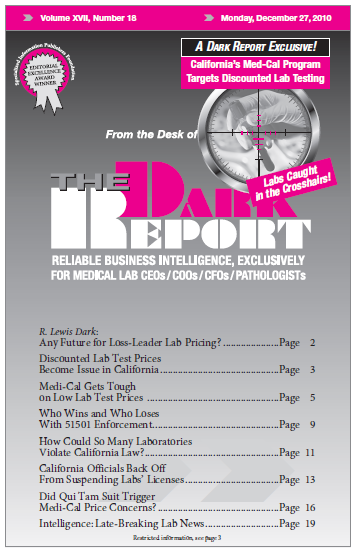CEO SUMMARY: This may be the most significant lab industry story of 2010, which has gone unreported until now. Starting in June and July, California’s Department of Health Care Services determined that between 10 and 30 labs had submitted what the agency considers to be false claims. It sent out letters to these labs to …
Medi-Cal Gets Tough on Low Lab Test Prices Read More »
To access this post, you must purchase The Dark Report.


